
Between 1097 and 1293, the medieval world saw involved in two almost continuous centuries of war between Christianity and Islam. Two ways of seeing the world, with the only separation being the Mediterranean Sea, and even the Iberian Peninsula, or the Byzantine Empire, separated by a diffuse land border. Two centuries that have been the subject of continuous revisions by historiography, endowing this part of history with multiple interpretations. Many of them question their religious virtue and focus on economic and political motives, possibly the majority as the conflict progressed. But knowing the devout Christianity of its main promoter, it seems difficult to deny the initial purpose of the origin of The Crusades .
By the way, a name coined by later historiography, since those men who left for the Holy Land called them in many other ways such as:overseas expedition, pilgrimage, road to Jerusalem or grave road.
Pope Urban II.
Pope Urban II was born in the small commune of Lagery, north of Paris. Due to his noble origin, he will soon be known as Eudes de Lagery, a social position that earned him to start his studies within the Benedictine Order. His first destination was Reims, where he served as archdeacon of the see. Thanks to his high training, and the recommendation of one of his professors, his next destination was the one that by then had become the most important monastery in France, Cluny.
By this time the monastery had become the main seat of studies for church reform. This was plunged into a deep moral crisis, the purchase of ecclesiastical positions was the order of the day, and religious celibacy was part of a distant past. From the Cluny Monastery came the main regulations that Pope Gregory VII soon adapted to elaborate the Papal Bull of 1075 where the Gregorian Reform was established in honor of Pope Saint Gregory the Great. The Pope would be from those moments the main religious power in Europe, without any king or nobleman being able to intercede in it.
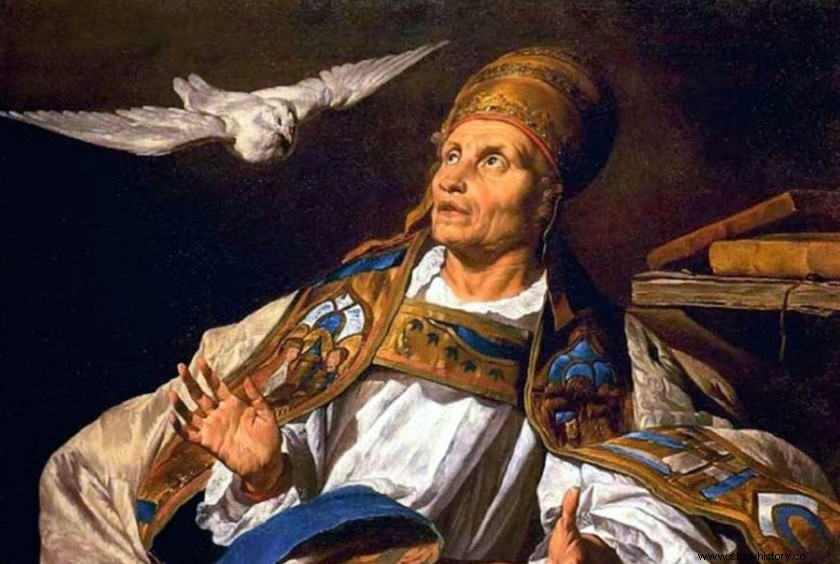
Saint Gregory the Great, Pope between 590-604
Eudes de Lagery's work was rewarded. Pope Gregory VII wanted to keep him close by naming him Cardinal Bishop of Ostia, and his main adviser. It will be in this period, acting as Papal legate, when his problems with the German Emperor Henry IV begin, who kept him prisoner for a few months. After the death of the Pope, everything presaged his papal appointment, but he still had to wait a little longer. Finally, the new Pope, Victor III, has a short term of two years, and now Eudes was consecrated Pope on March 12, 1088, as Urban II.
As soon as he came to power, he excommunicated Emperor Henry IV and Antipope Clement III, chosen by the former. The separation of the European kings is completed in the year 1095 when he also excommunicates the King Philip I of France for having separated from his wife. His firm commitment to freeing the church from the interference of kings, nobles and emperors led him to be imprisoned on numerous occasions, but he had the help of the people of Rome and especially the Norman kingdoms of southern Italy.
The speech that gave rise to the Crusades.
1095 was the crucial year for the birth of the Crusader movement. At the beginning of March, Pope Urban II summons a Council in the city of Piacenza. Bishops from a large part of Europe attend it:French, Italians and Germans in particular. There is no record of what was discussed on those days. But historiography admits the arrival at the Council of an emissary from the Byzantine Emperor Alexios I Komnenos, with a request for help in the face of the imminent conquest of the other capital of Christianity, Constantinople, by the Seljuk Turks. It was an opportunity to end the separation between the Christian churches, but for this Rome had to help Constantinople and the Papacy did not have an army, in addition the main European kings turned their backs on the Pope. He needed to mobilize Christians and so he did.
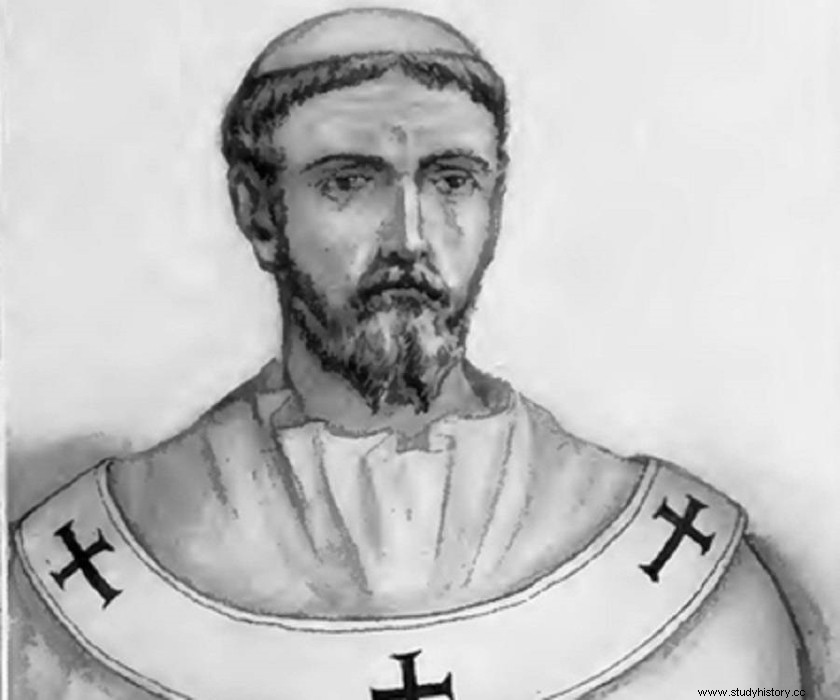
Pope Urban II
On November 27 of that year 1095, after finishing the conciliar meeting inside the Cathedral of the French town of Clermont, he went outside to deliver a speech that would change the course of history. The fact of doing it outside cannot make us think of the large number of people who came from all over France, not in vain who was going to speak was the first Pope born in French territory in history. Pointing out those present there is very complicated, but some names have left their mark on historiography as listeners of that speech.
Godfrey de Vendôme and Baldirico de Bourguil both prominent chroniclers of the first crusade were there, although they do not appear to have joined it afterwards. Fulcherius of Chartres he was also one of those present and if he went to Jerusalem. Finally, highlight Roberto de Reims , known as Roberto el Monje, listener of that speech and key piece for historiography to know the words of Pope Urban II. Robert did not attend the first crusade, but was commissioned by the Abbot of Reims to transcribe the Gesta Francorum, one of the best written chronicles of the first crusade, there I include the words of Pope Urban II. Said chronicle was studied at the end of the 19th century by the American historian Dana C. Munro, to include it in his doctoral thesis, and today it is still accepted as the most reliable of the words of Urban II.
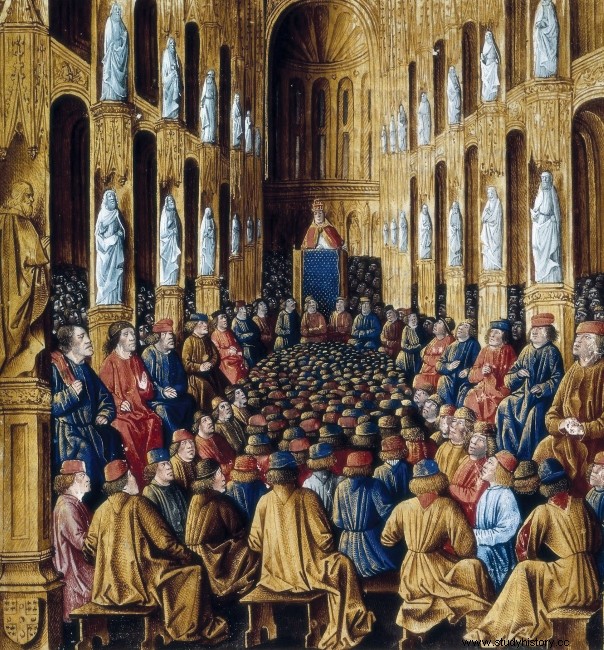
Council of Clermont
These are some of the most interesting excerpts:
“From the borders of Jerusalem and the city of Constantinople a horrible story has come forth and has often been brought to our ears, namely, that a race of the kingdom of the Persians, a cursed race, a race totally alienated from God, a generation that has not directed its heart and has not entrusted its spirit to God, has invaded the lands of those Christians and has depopulated them with the sword, the plunder and the fire”
“When they wish to torture people for a basic death, they pierce their navels, and dragging the end of the intestines, attach it to a stake; then, with the flogging they take the victim until the viscera that have sprouted, the victim falls prostrate on the ground”
“Let the actions of your ancestors move you and incite your minds to varied achievements; the glory and greatness of King Charles the Great, and of his son Louis, and of his other kings, who have destroyed the kingdoms of the pagans, and have extended in these lands the territory of the holy church . May the holy sepulcher of the Lord our Savior, which is possessed by unclean nations, especially incite you, and the holy places that are now treated with ignominy and irreverently polluted with the filth of it ”
Pope Urban II invoked the memory of Charlemagne and his son Louis I as saviors of Christianity from the pagan kingdoms of the Middle Ages.
“But if seeing you hinders the love of children, parents and wives, remember what the Lord says in the Gospel:«He who loves more father or mother than me, is not worthy of me." "Everyone who has abandoned houses, or brothers, or sisters, or father, mother, wife, or children, or lands for my name will receive a hundredfold and inherit eternal life"
“Enter the path to the Holy Sepulchre; snatch that land from the evil race, and subdue it to themselves. That land that as the Scripture says «flows with milk and honey», was given by God in possession of the children of Israel. Jerusalem is the navel of the world; the earth is fruitful above all others, like another paradise of delights”
“This royal city, therefore, situated in the center of the world, is now held captive by its enemies, and is in subjection to those who do not know God , to the worship of the pagans. She seeks, therefore, and wishes to be freed, and she does not stop imploring you to come to her aid. Of you, especially, she asks for help, because, as we have already said, God has bestowed on you above all the nations a great glory in arms. Consequently, she undertakes this path for the remission of your sins, with the assurance of the imperishable glory of the kingdom of heaven ”
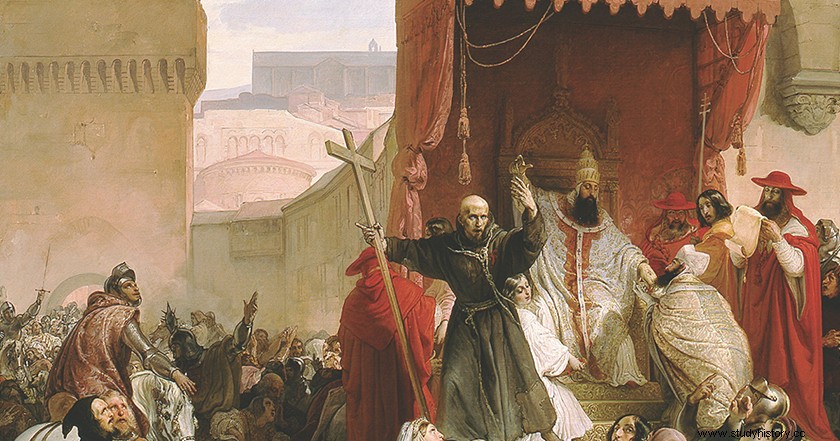
Representation of Urban II's speech by Francesco Hayez in the 19th century
According to the chronicle behind these words, the people joined with a single cry:
It's God's will! It's God's will!
To which Pope Urban II replied:
Dearest brothers, today what the Lord says in the Gospel is manifested in you:«Where two or three are gathered in my name, I am in the midst of they." Unless the Lord God had been present in his spirits, all of you would not have uttered the same cry. Because, although the cry emanated from many mouths, nevertheless, the origin of the cry was one. That is why I tell you that God, who implanted this in your breasts, has taken it out of you. Let this then be your battle cry, for God has given you this word. When an armed attack is made on the enemy, let this cry be raised by all God's soldiers:It is God's will! It's God's will!
The following paragraph demonstrated the power that the Pope possessed is not wasted:
“And we do not command or advise that the old or weak, or those unfit to bear arms, undertake this journey; nor should women go out at all, without their husbands or brothers or legal guardians. Because such are more a hindrance than a help, more a burden than an advantage. Let the rich help the needy; and according to their wealth, let them take experienced soldiers with them. Priests and secretaries of any order do not go without the consent of their bishop; for this trip it would not benefit them at all if they left without their permission. Furthermore, it is not proper for lay people to enter the pilgrimage without the blessing of their priests.”
To finish; the promise of eternal salvation.
“Whoever, therefore, determines in this holy pilgrimage and makes his vow to God to that effect and will offer himself to him as a living sacrifice, holy, acceptable to God, he will bear the sign of the cross of the Lord on his forehead or on his chest. When, 'really', having fulfilled his promise to be willing to return, let him place the cross on his back between his shoulders. Such, in fact, by double action will fulfill the precept of the Lord, as he commands in the Gospel:«Whoever does not take his cross and follow after me, he is not worthy of me.»
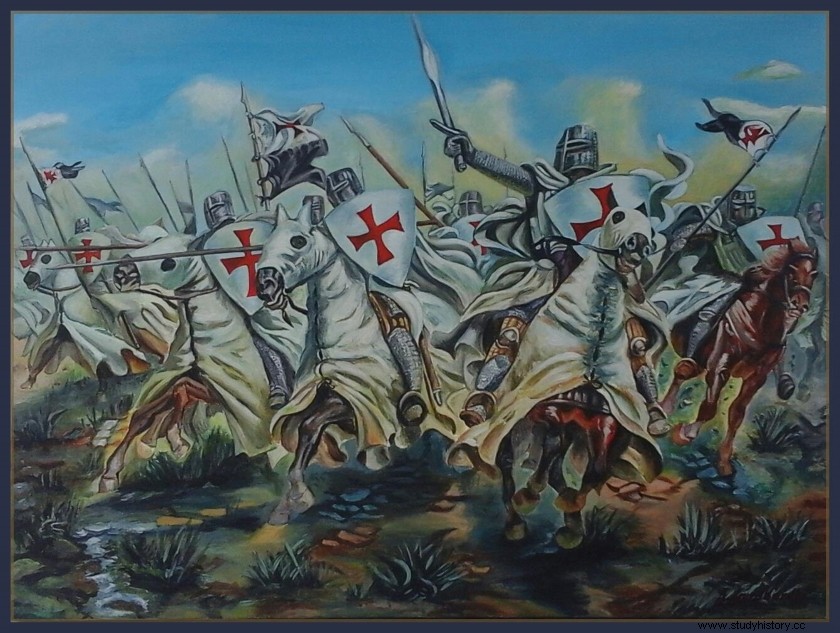
The Crusaders
The crusading movement had just been born, those men traveled all the Christian territories in pursuit of uniting an army that, wearing a cross on their chest, almost four years later, and a Endless battles entered Jerusalem on July 15, 1099.
Recommended reading on the topic:
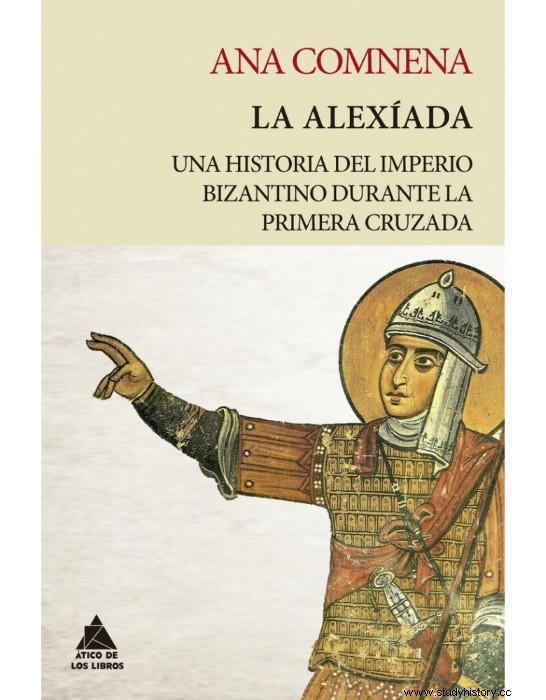
Buy. The Alexiad.
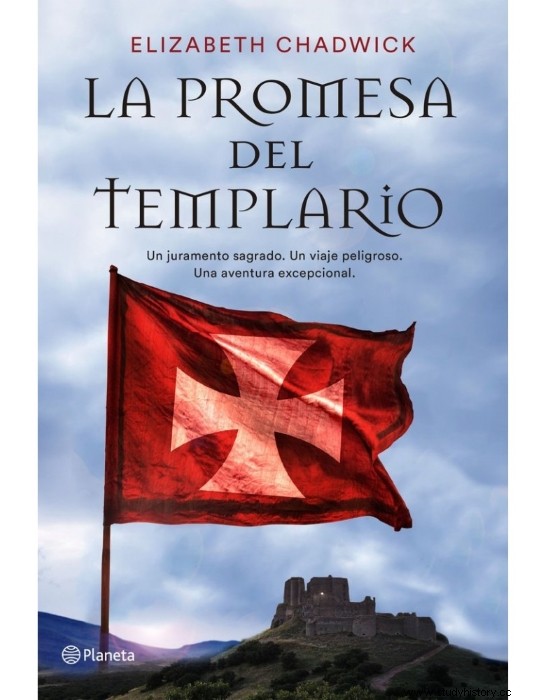
Buy. The promise of the templar.
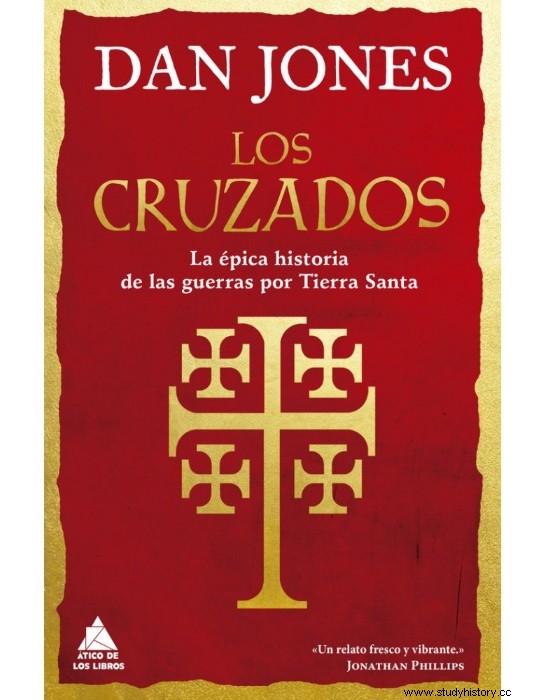
Buy. The Crusaders.
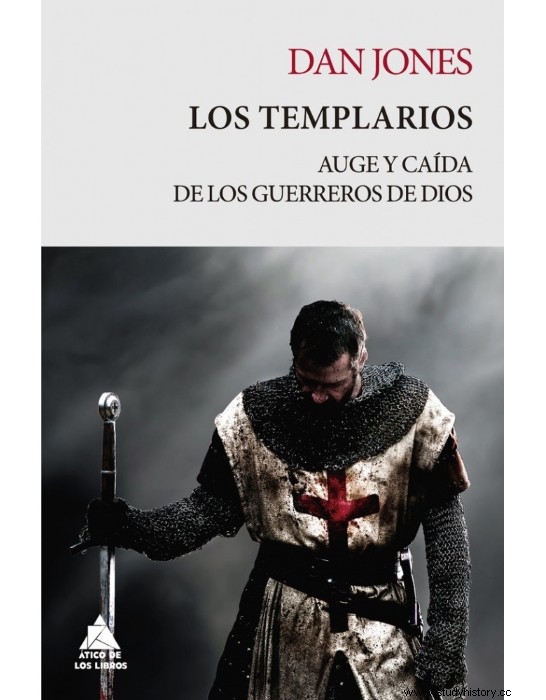
Buy. The Templars.
Doctoral thesis, Bernardo de Claraval and the Holy War, Aurelio Alfonso Pastori Ramos.
The Middle Ages V-XII centuries, Julián Donado Vara, Ed. Areces, 2009.
https://donparrish.com/EssayPopeUrban.html
